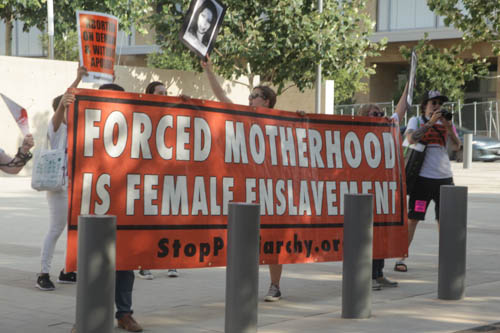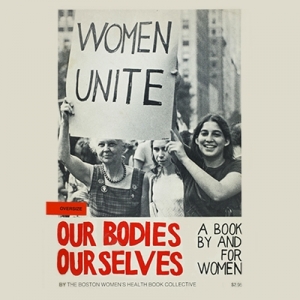Abortion is a crime……. against producing cheap labour ? Examining the attitudes to Abortion from the capitalist imperative
Killer. Sinner. Criminal. These are the words used to address women who have abortion. Apparently, the dominant feeling towards women who chose to terminate pregnancy, even for reason of rape or incest is hatred and denunciation. It is so intense that the women themselves feel blameworthy and think that they deserve to be punished. But, why is abortion stigmatized and viewed so badly?
In the Philippines, abortion has been criminalized for over a century (based on the Penal Code of 1870 during the Spanish colonial rule). The 1987 Constitution also declares as a matter of principle and state policy that “the State shall equally protect the life of the mother and the life of the unborn child from the moment of conception.”
The majority of the Philippine population are Christians and even when the doctrine of delayed ensoulment was believed, Christians continued to extend moral and legal protection of the human embryo from the beginning. Hence, abortion is viewed both as a sin and a criminal act.
According to Lenin, as the society evolves and as we enter the capitalist mode of production, it is expected that people need to reproduce labor power of capitalism. The ruling class has historically functioned as an institution to pass on their inheritance to future generations, while the working class took on the function of providing the system with a plentiful supply of labor.
But, the production of labor for the working class, including the burden of raising children and maintaining the household, is reliant upon one or two parent’s wages, rather than the government expenditure.
While the government continues to neglect education, health and other social services that would help Filipinos raise their kids, couples or single parents are faced with the burden of these costs. At birth, normal delivery cost is a minimum of P10,000 at a public hospital to P60,000.00 at a private hospital. For the first six months, the conservative cost of P58,500.00 is needed to raise a healthy baby. Additionally, P30,000.00 per month is cost of household expenses. So, when a housewife whose husband earns a minimum wage of P446.00 per day and have 3 kids already becomes pregnant again (either because of failure of contraception or not using any contraception); she will be uncertain about being able to raise another child.
But the Philippine society that is dependent on foreign monopoly capitalism and domestic feudalism needs a relative surplus of population that keeps the local labor market cheap so that they can be workers for the multinational companies or for export to other countries to sustain the dwindling economy of the country. An army of peasants, who don’t have a land to toil, and would offer their cheap labor to the landlords and produce cheap raw materials for export. Labor force, which the ruling class needs to become richer and richer.
Therefore, despite the recent approval to implement the Reproductive Health Law, the government doesn’t really have the genuine desire to empower the working class to exercise fully their reproductive rights and human rights. It is therefore wrong to blame the poverty on overpopulation when the poverty is the result of severe inequality and the inevitable outcome of a greedy capitalist system.
 Women, especially the working class and peasant women face a double jeopardy. Reproductive labor (unwaged) are viewed largely as the responsibilities of women; while men are in charge of the productive labor (waged).. So, apart from the legal and spiritual consequences, women who had abortions are subject to being judged as irresponsible members of the society, because they didn’t fulfil the expected function.These notions are internalized by women making them guilt-ridden and they experience emotional and mental health difficulties after having an abortion.
Women, especially the working class and peasant women face a double jeopardy. Reproductive labor (unwaged) are viewed largely as the responsibilities of women; while men are in charge of the productive labor (waged).. So, apart from the legal and spiritual consequences, women who had abortions are subject to being judged as irresponsible members of the society, because they didn’t fulfil the expected function.These notions are internalized by women making them guilt-ridden and they experience emotional and mental health difficulties after having an abortion.
But if we really care about the sanctity and importance of human life, including the life of women, we shouldn’t be condemning those women who had abortions, rather we should denounce the government who neglects its people and serves the interest of the ruling class. The real killers, sinners and criminals are those who exploit the Filipino masses, including their protectors in the government, not the women who had abortion.
Sources:
Jones, D. A. (2005). The Human Embryo in the Christian Tradition: A reconsideration. J Med Ethics, 31 (1), 710-714. Doi 10.1136/jme.2004.011593
Monis, J. (2013). The Post Abortion Experience of Filipino Women with Complications from Induced Abortion.(Master Dissertation, University of East Ramon Magsaysay Memorial Medical Center, Inc., 2013). Retrieved from https://mail.google.com/mail/u/0/#search/monis+manuscript/141c4fc7aa0e0f58?projector=1
Sison, J.M. (1970) Philippine Society and Revolution. Retrieved from ttp://bannedthought.net/Philippines/CPP/1970s/PhilippineSocietyAndRevolution-4ed.pdf







